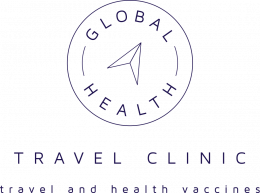TYPHOID
Typhoid is most commonly spread through ingestion of food and drink that has been contaminated with faeces or urine from a human case or carrier. Travellers to all destinations should be advised to practice good Food and Water hygiene to reduce the risk of all food and water borne infections.
WATER
Typhoid can be caught from drinking contaminated water, or swimming in it. Unless you know the water-supply is safe where you are staying, use
- Boiled water
- Bottled water or canned drinks
- Water treated by a sterilising agent.
This includes water used to make ice cubes in drinks and water for cleaning your teeth.
FOOD
Contaminated food is one of the commonest source of many diseases.
You can help prevent it by;
- Only eat well cooked fresh foods
- Avoid leftovers and reheated foods
- Ensure meat is thoroughly cooked
- Eat cooked vegetables and avoid salads
- Only eat fruit you can peel
- Never drink unpasteurised milk
- Avoid ice-cream
- Shell fish is high risk
- Avoid food from street vendors
HANDWASHING & PERSONAL HYGIENE
Many diseases are transmitted by what is known as the ‘faecal-oral’ route. To help prevent this, always wash your hands with soap and clean water after going to the toilet, before eating and before handling food. Using hand gel is another sensible option. See other Global Health Travel clinic blogs on handwashing. If you do not know the happy birthday connection read the handwashing blog.
https://globalhealthtravelclinic.co.uk/hand-washing-prevent-infections-home-whilst-travelling/
or
https://www.youtube.com/watch?v=aGJNspLRdrc
TYPHOID VACCINATION
The country-specific recommendations for the use of typhoid vaccine in travellers have been revised, to take into account data on imported typhoid cases, recently published.
The majority of typhoid illness in travellers is acquired in Central/South Asia. The recommendation is that that typhoid vaccine only be ‘usually advised’ for the following countries; Afghanistan, Bangladesh, Bhutan, India, Nepal, Pakistan.
For travellers to other countries where a lower risk of typhoid has been identified, vaccination may be ‘sometimes advised’ if they are:
- Venturing off the usual tourist routes to visit smaller villages, cities and rural areas where access to adequate sanitation and safe water may be limited.
- Visiting friends and relatives.
- Unable to take sufficient care with food and drink, including children.
- Those with increased susceptibility to infection or to severe outcome.
- Long stay travellers.

